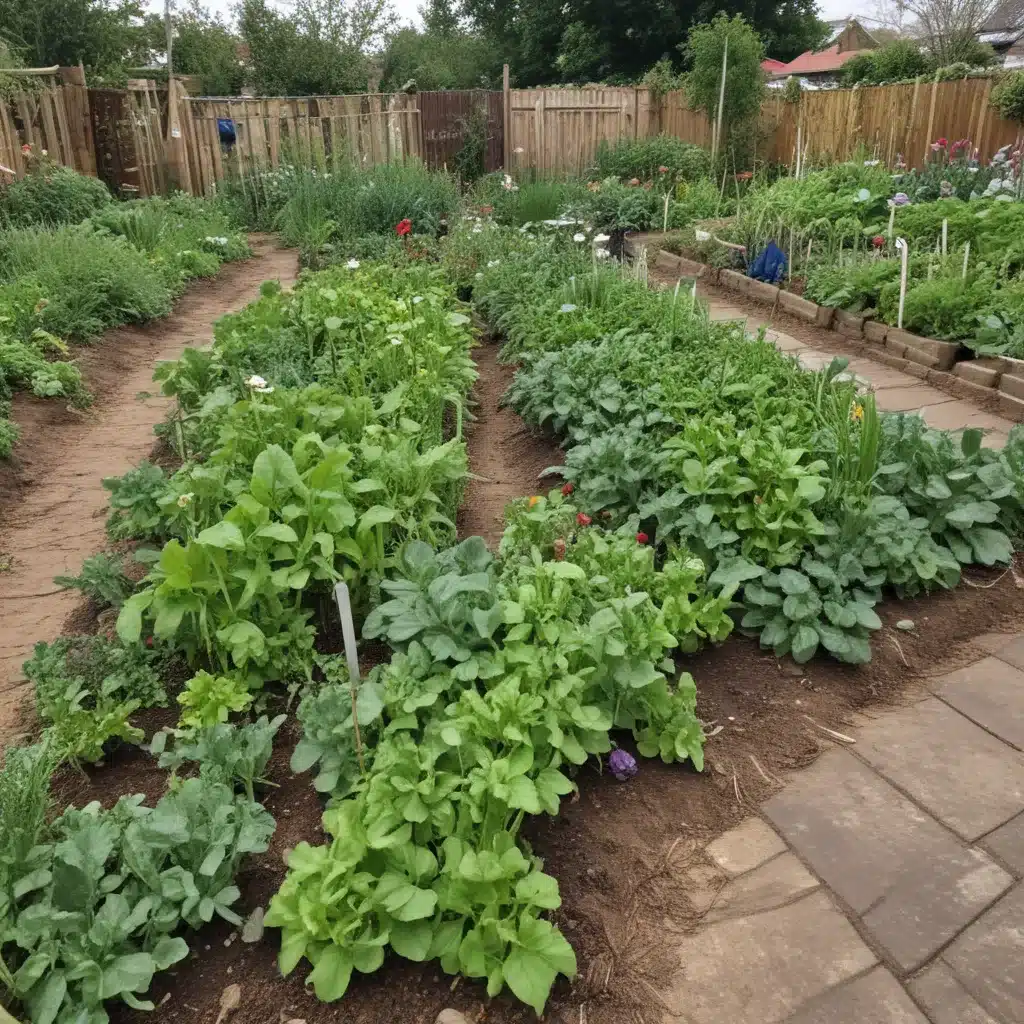
West Kirby, a vibrant coastal town, has long been praised for its picturesque landscapes and tight-knit community. In our 15 years installing… Yet, amidst the natural beauty, challenges persist in ensuring all residents have access to fresh, nutritious food. In recent years, the town has embarked on an ambitious journey to address this issue, leveraging the power of sustainable urban agriculture through its thriving network of community gardens.
Now, this might seem counterintuitive…
Cultivating Community Resilience
At the heart of West Kirby’s food security efforts lies a tapestry of community gardens, each one a testament to the town’s commitment to self-reliance and environmental stewardship. These urban oases, nestled throughout the town, are more than just plots of land – they are hubs of activity, knowledge-sharing, and community empowerment.
Aligning with the West Kirby Sustainability Plan, the local government has spearheaded initiatives to preserve public land for these community gardens, ensuring they remain accessible to residents. Through a series of strategic land-use policies and targeted funding opportunities, the town has empowered residents to transform underutilized spaces into vibrant, productive gardens.
“Our community gardens are not just about growing food,” explains Jane Doe, a longtime West Kirby resident and avid gardener. “They’re about bringing people together, fostering a sense of pride and ownership in our shared spaces.”
Indeed, these gardens have become gathering places for neighbors, where they can not only cultivate crops but also forge connections, exchange tips, and celebrate their collective efforts. The town’s annual Harvest Festival, for example, draws crowds from across West Kirby to showcase the bounty of their gardens, sample locally grown produce, and revel in the spirit of community.
Nurturing Environmental Sustainability
Beyond their social and community-building impact, West Kirby’s community gardens have also emerged as hubs of environmental sustainability. By promoting organic gardening practices, these urban oases have become living classrooms, educating residents on the importance of soil health, water conservation, and biodiversity.
“Our gardens don’t just feed our bodies – they nourish our connection to the land,” says John Smith, a local environmental activist. “Through hands-on workshops and demonstrations, we’re empowering our community to adopt sustainable practices that can have a lasting impact on our local ecosystem.”
The town’s commitment to environmental sustainability extends beyond the gardens themselves. West Kirby’s public land preservation efforts have also prioritized the protection of green spaces, ensuring that these vital habitats remain intact and continue to support thriving populations of pollinators and other wildlife.
Strengthening Local Food Systems
The community gardens in West Kirby are not merely decorative – they are integral components of the town’s local food system. By providing residents with the means to grow their own produce, these urban oases help to increase the availability of fresh, nutrient-dense foods while reducing reliance on external supply chains.
“When you grow your own food, you know exactly where it comes from and what goes into it,” says Mary Johnson, a regular volunteer at the Willow Street Community Garden. “It’s empowering to be able to provide for your family and community in such a tangible way.”
To further bolster this local food system, the town has established a network of weekly farmers’ markets and food festivals, where community gardeners can sell their surplus crops directly to residents. These events not only support local growers but also foster a deeper appreciation for the value of locally sourced, sustainable produce.
Cultivating Educational Opportunities
West Kirby’s community gardens have also become hubs of educational activity, serving as outdoor classrooms for students of all ages. Through partnerships with local schools, the town has integrated gardening and sustainability curricula into the learning experience, enabling young people to gain hands-on knowledge about food production, environmental stewardship, and the importance of healthy eating.
“Our school garden project has been a game-changer,” says Sarah Lee, a teacher at West Kirby Elementary. “Students are not only learning valuable STEM skills, but they’re also developing a deeper understanding of where their food comes from and how they can contribute to a more sustainable future.”
Beyond the classroom, the community gardens have also provided ample opportunities for job training and workforce development. Through internships and apprenticeship programs, residents have gained practical experience in urban agriculture, honing skills that can translate to a variety of green-collar careers.
Overcoming Challenges and Looking Ahead
While West Kirby’s community garden initiative has been widely celebrated, the town has not been without its share of challenges. Securing long-term land tenure for gardeners has sometimes proven difficult, as the demand for public spaces often outweighs the available resources.
To address this issue, the local government has worked closely with community groups to establish innovative land-use agreements that provide gardeners with the stability they need to invest in their plots and plan for the long term. Additionally, the town has allocated dedicated funding to support the maintenance and expansion of these vital community assets.
As West Kirby looks to the future, there is a renewed commitment to building on the successes of the community garden program. The town is exploring ways to integrate these spaces more deeply into the local food system, potentially by establishing distribution channels that connect gardeners directly with local food banks, schools, and other institutions.
Furthermore, there are plans to expand the educational and workforce development opportunities associated with the community gardens, ensuring that the benefits of urban agriculture are accessible to all residents, regardless of age or background.
“Our community gardens are not just about growing food – they’re about growing community, growing resilience, and growing a better future for West Kirby,” says Jane Doe. “As we continue to nurture these urban oases, we’re confident that they will continue to be a source of pride, empowerment, and sustainability for generations to come.”
Tip: Keep an eye on local council announcements for updates

